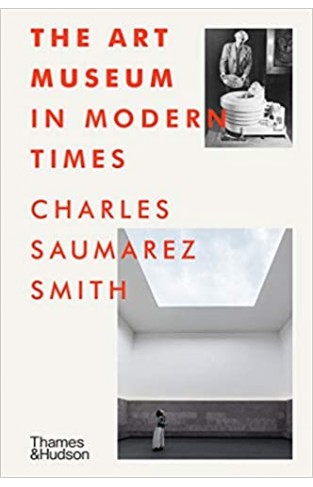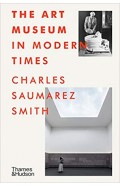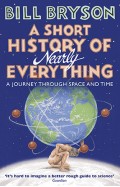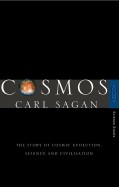The Art Museum in Modern Times
By: Charles Saumarez Smith
-
Rs 8,920.75
- Rs 10,495.00
- 15%
You save Rs 1,574.25.
Due to constant currency fluctuation, prices are subject to change with or without notice.
For this book, Saumarez Smith has undertaken an odyssey to art museums across the globe. From Tate Modern in London to the Benesse House Museum on the Japanese island of Naoshima; from the Getty Center in Los Angeles to the Museum of New and Old Art, a ferry-ride from Hobart in Tasmania; from the Pompidou Centre in Paris to the West Bund Museum in Shanghai – he has visited them all, casting an acute eye on the way the experience of art is shaped by the buildings that house it and the organizing principles by which it is displayed.
What has changed over the past century? Where the public once visited museums to be educated in art history, he argues, they are now more likely to be in search of a private, aesthetic experience. Museum displays that were automatically didactic, chronological and either national or Western in viewpoint are now thematic and global. While museums used to be invariably in city centres, they may now be in remote locations, destinations of cultural pilgrimage. And where architects once created neutral spaces in which to display art, they now build spectacular architectural landmarks, stamping an identity on run-down neighbourhoods and sparking regeneration through cultural tourism.
With 122 illustrations in colour
For this book, Saumarez Smith has undertaken an odyssey to art museums across the globe. From Tate Modern in London to the Benesse House Museum on the Japanese island of Naoshima; from the Getty Center in Los Angeles to the Museum of New and Old Art, a ferry-ride from Hobart in Tasmania; from the Pompidou Centre in Paris to the West Bund Museum in Shanghai – he has visited them all, casting an acute eye on the way the experience of art is shaped by the buildings that house it and the organizing principles by which it is displayed.
What has changed over the past century? Where the public once visited museums to be educated in art history, he argues, they are now more likely to be in search of a private, aesthetic experience. Museum displays that were automatically didactic, chronological and either national or Western in viewpoint are now thematic and global. While museums used to be invariably in city centres, they may now be in remote locations, destinations of cultural pilgrimage. And where architects once created neutral spaces in which to display art, they now build spectacular architectural landmarks, stamping an identity on run-down neighbourhoods and sparking regeneration through cultural tourism.
With 122 illustrations in colour
The Art Museum in Modern Times
By: Charles Saumarez Smith
Rs 8,920.75 Rs 10,495.00 Ex Tax :Rs 8,920.75
Zubin Mehta: A Musical Journey (An Authorized Biography)
By: VOID - Bakhtiar K. Dadabhoy
Rs 892.50 Rs 1,050.00 Ex Tax :Rs 892.50
Is Pluto a Planet?: A Historical Journey through the Solar System
By: David A. Weintraub
Rs 6,115.75 Rs 7,195.00 Ex Tax :Rs 6,115.75
Beyond UFOs: The Search for Extraterrestrial Life and Its Astonishing Implications for Our Future
By: Jeffrey Bennett
Rs 4,797.50 Rs 9,595.00 Ex Tax :Rs 4,797.50
The Islamist Why I Became an Islamic Fundamentalist What I Saw Inside and Why I Left
By: Ed Husain
Rs 510.00 Rs 600.00 Ex Tax :Rs 510.00
The Demon Haunted World Science As A Candle In The Dark
By: Carl Sagan
Rs 3,595.50 Rs 3,995.00 Ex Tax :Rs 3,595.50
No similar books from this author available at the moment.
Ultimate Football Heroes the No 1 football series Zlatan
By: Matt Oldfield
Rs 1,615.50 Rs 1,795.00 Ex Tax :Rs 1,615.50
Zubin Mehta: A Musical Journey (An Authorized Biography)
By: VOID - Bakhtiar K. Dadabhoy
Rs 892.50 Rs 1,050.00 Ex Tax :Rs 892.50
The Art Museum in Modern Times
By: Charles Saumarez Smith
Rs 8,920.75 Rs 10,495.00 Ex Tax :Rs 8,920.75














-120x187.jpg?q6)















